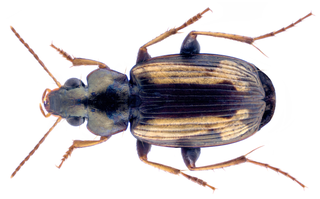
Lo Wei was a Hong Kong film director and film actor best known for launching the martial arts film careers of both Bruce Lee, in The Big Boss and Fist of Fury, and Jackie Chan, in New Fist of Fury.
Meng Tian was a Chinese inventor and military general of the Qin dynasty who distinguished himself in campaigns against the Xiongnu and in the construction of the Great Wall of China. He was the elder brother of Meng Yi. He descended from a great line of military generals and architects. His grandfather, Meng Ao, was a general from the era of King Zhao; and his father, Meng Wu, was also a general who served as a deputy to Wang Jian.

Shek Wing-cheung, better known by his stage name Shih Kien, Sek Kin, or Sek Gin or Shek Kin(Chinese: 石堅; pinyin: Shí Jiān; Jyutping: Sek6 Gin1), was a Hong Kong–based Chinese actor. Shih is best known for playing antagonists and villains in several early Hong Kong wuxia and martial arts films that dated back to the black-and-white period, and is most familiar to Western audiences for his portrayal of the primary villain, Han, in the 1973 martial arts film Enter the Dragon, which starred Bruce Lee.

Wang Jian, courtesy name Guangtu (光圖), also known by his temple name as the Emperor Gaozu of Former Shu (前蜀高祖), was the founding emperor of the Former Shu, one of the ten kingdoms during the Five Dynasties and Ten Kingdoms period in Chinese history. He started his career as an army officer under the Tang dynasty eunuch generals Yang Fuguang and Tian Lingzi, eventually seizing control of the modern Sichuan and Chongqing region, founding his state after Tang's destruction.

Wang Jian was a Chinese military general from the State of Qin during the Warring States period. Under his command, the Qin army conquered the states of Zhao, Yan, and Chu. He is considered one of the four greatest generals of the late Warring States period, along with Bai Qi, Lian Po and Li Mu.
The Taiping Heavenly Kingdom developed a complicated peerage system for noble ranks.

Chinese Paladin 3 is a 2009 Chinese television series adapted from the video game of the same title, and, because of an added time travel concept allowing the protagonist from Chinese Paladin (2005) to appear in the setting decades before the events of the first. It was first aired on Taizhou Broadcasting Station in June 2009. Chinese Paladin 2 was not filmed because the producers felt that the third game had a much stronger story than the second.

Tetragonoderus is a genus of beetles in the family Carabidae, containing the following species:

Justice Bao is a Chinese TV series starring producer Jin Chao-chun as the Song dynasty official Bao Zheng. The series ran for 3 seasons from 2010 to 2012. In addition to Jin, Kenny Ho, Fan Hung-hsuan and Lung Lung again reprise their iconic roles from the 1993 Taiwanese hit Justice Pao and the 2008 Chinese series Justice Bao.
Duke Dao of Qi was from 488 to 485 BC ruler of the State of Qi, a major power during the Spring and Autumn period of ancient China. His personal name was Lü Yangsheng (呂陽生), ancestral name Jiang, and Duke Dao was his posthumous title. Before ascending the throne he was known as Prince Yangsheng.
Duke Jian of Qi was from 484 to 481 BC ruler of the State of Qi, a major power during the Spring and Autumn period of ancient China. His personal name was Lü Ren (呂壬), ancestral name Jiang, and Duke Jian was his posthumous title.
Duke Ping of Qi was from 480 to 456 BC the titular ruler of the State of Qi, a major power during the Spring and Autumn period of ancient China. His personal name was Lü Ao (呂驁), ancestral name Jiang, and Duke Ping was his posthumous title.
Duke Tai of Tian Qi was from 386 to 384 BC ruler of the State of Qi, a major power during the Warring States period of ancient China. He was the first Qi ruler from the House of Tian, replacing the House of Jiang that had ruled the state for over six centuries.
King Xiang of Qi was from 283 to 265 BC king of Qi, one of the seven major states of the Warring States period of ancient China. King Xiang's personal name was Tian Fazhang (田法章), ancestral name Gui, and King Xiang was his posthumous title.
Jian, King of Qi was the last king of Qi, one of the seven major states of the Warring States period of ancient China. His personal name was Tian Jian (田建), ancestral name Gui, and he did not have a posthumous title because he was the last king of Qi.
mir-612 microRNA is a short non-coding RNA molecule belonging both to the family of microRNAs and to that of small interfering RNAs (siRNAs). MicroRNAs function to regulate the expression levels of other genes by several mechanisms, whilst siRNAs are involved primarily with the RNA interference (RNAi) pathway. siRNAs have been linked through some members to the regulation of cancer cell growth, specifically in prostate adenocarcinoma.
Chinese oceanographic research ship Zhang Jian is a Chinese research ship designed by Shanghai Ocean University and built by the civilian owned Zhejiang TianShi Shipbuilding Co., Ltd. (浙江天时造船有限公司) in Wenling, instead of government-owned enterprise, as in most cases of the ships in Chinese service.

Weibo, also known as Tianxiong, was a province or circuit of the mid to late Tang dynasty.

The jian or tie tian, also known as Chinese swordbreaker or Chinese truncheon, is a type of quad-edged straight mace or club specifically designed to break weapons with sharp edges. The traditional Chinese weapon has a rectangular cross section with sharp corners, making it ideal to focus on damaging other weapons with brutal impact.
Fú or Foo (符) is a Chinese surname meaning “tally” in ancient Chinese, referring to the Zhou dynasty Fu (tally). Its use as a surname derives from the post name Fu Xi Ling (符璽令), which was borne by Gong Ya, grandson of Duke Qing of Lu who later migrated to Qin. According to the Oxford Dictionary of Family Names on Britain and Ireland: “This was a post held by the man in charge of the tally given by a ruler to a general to deploy troops or to an envoy as his credentials.”








